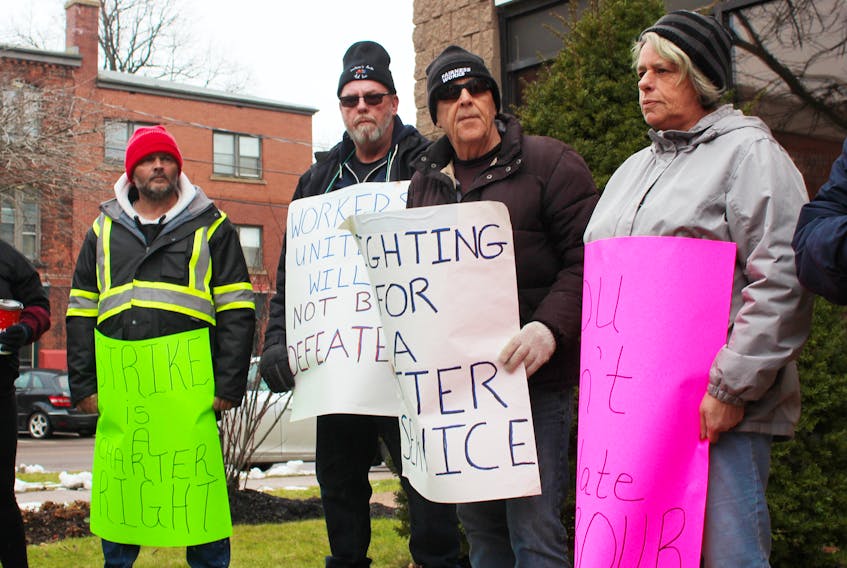Postal workers in P.E.I. feel betrayed by the federal government’s back-to-work legislation, a group of protestors told Charlottetown MP Sean Casey Saturday.
A group of more than 30 individuals, including postal workers and members of other unions, raised their concerns directly to Casey during a protest in front of the MP’s office as part of a national day of action.
Pearl Gillis-Palmer, president of Canadian Union of Postal Workers (CUPW) Charlottetown Local 30, said postal workers in Charlottetown were previously confident in the federal Liberal government because of the party’s criticism of the former Conservative government’s program to convert home mail delivery to community boxes.
However, that confidence has since been lost, she said.
“We lost faith in the Liberal government when they legislated us back to work,” said Gillis-Palmer. “They let us down.”
Last week, Canada Post employees were ordered back to work after new legislation put an end to five weeks of rotating strikes.
Carl Pursey, president of the P.E.I. Federation of Labour, said government violated postal workers’ constitutional rights by forcing them back to work.
“And thereby prevented (them) from negotiating a contract on equal terms with their employer, Canada Post,” said Pursey. “The concerns and demands of the postal workers were valid. They were asking for safer working conditions. This is a legitimate concern because they are among the most injured workforce in Canada.”
However, while addressing protestors, Casey said government was committed to free collective bargaining.
Casey described a year of government appointing mediators, and later conciliation officers and a special mediator, to encourage Canada Post and CUPW to come to an agreement.
He described the back to work legislation as a “last resort” that government took because all other means were exhausted.
“This was not a decision government made lightly,” said Casey, who described negative social and economic impacts arising from the rotating strikes.

Casey said the strikes were negatively affecting small and medium sized businesses, noting this is the busiest time of year for many of them.
Casey also said that every constitutional right is not absolute and that the rotating strikes conducted by postal workers were having a disproportional negative effect on vulnerable populations such as seniors, the poor, those with disabilities or limited access to internet and those living in rural or remote areas.
“For them, mail service is a lifeline,” said Casey.
As of now, Gillis-Palmer said postal workers are waiting to hear what mediation will result in.
“Hopefully we will end up with a collective agreement,” said Gillis-Palmer, adding that she hopes the matter does not eventually end up in arbitration. “I don’t know what’s going to happen then. I just don’t know.”
[email protected]
Twitter.com/Mitch_PEI









